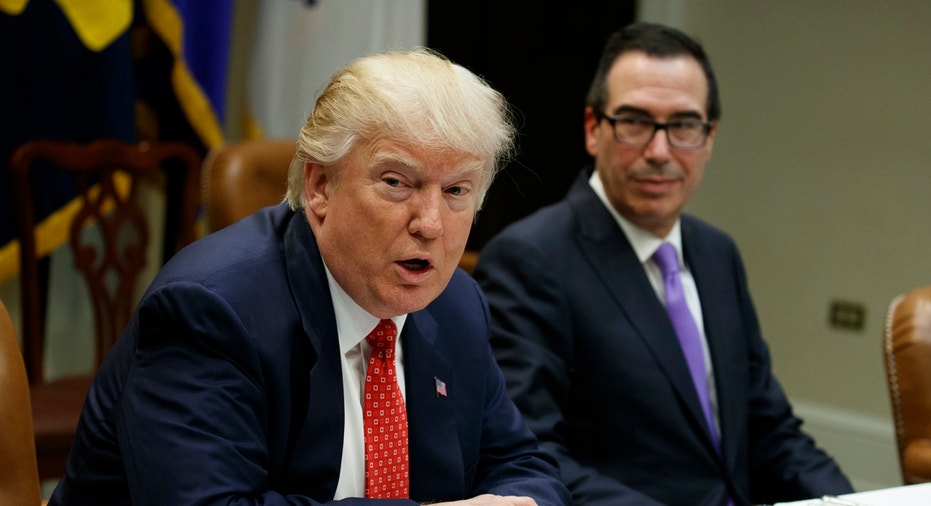Trump Says Republican Border Tax Could Boost U.S. Jobs

President Donald Trump on Thursday spoke favorably about a potentially export-boosting border adjustment tax being pushed by Republicans in the U.S. Congress, but did not specifically endorse it.
Trump, who has lashed out at U.S. companies who have moved operations to countries like Mexico, has previously sent mixed signals on the proposal at the heart of a Republican plan to overhaul the tax code for the first time in more than 30 years.
"It could lead to a lot more jobs in the United States," Trump told Reuters in an interview, using his most positive language to date on the proposal.
Trump sent conflicting signals about his position on the border adjustment tax in separate media interviews in January, saying in one interview that it was "too complicated" and in another that it was still on the table.
"I certainly support a form of tax on the border," he told Reuters on Thursday. "What is going to happen is companies are going to come back here, they're going to build their factories and they're going to create a lot of jobs and there's no tax."
The Mexican peso weakened slightly against the U.S. dollar immediately after Trump's comments and was last trading at 19.68 per dollar. Earlier on Thursday, the Mexican currency hit its strongest level since Trump's Nov. 8 election victory.
Trump also said his administration will tackle tax reform legislation after dealing with Obamacare, the health insurance system that has raised the ire of Republicans since it was put in place by his predecessor, President Barack Obama, in 2010.
Earlier on Thursday, Treasury Secretary Steven Mnuchin told CNBC the Trump administration aimed to formulate a tax plan with support from the Republican-controlled House of Representatives and Senate and pass it before August.
BUSINESS DIVIDED
Trump spoke to Reuters after meeting with more than 20 chief executives of major U.S. companies to discuss ways to return manufacturing jobs to the United States, which was one of the linchpins of his presidential campaign.
A border adjustment has emerged as the most controversial segment of the House Republican tax reform blueprint.
The provision, which would exempt U.S. export revenues from federal taxes but impose an implicit 20 percent tax on imports, is vital to the House plan because it would raise more than $1 trillion in revenues to help pay for a corporate tax cut.
But it has divided American business.
Critics say it could fuel higher inflation, with retailers, oil refiners and automakers among those warning of higher prices for consumer goods if the measure passes.
But the proposal is music to the ears of many exporters, including U.S.-based multinational corporations, who have urged Congress to make it a part of comprehensive tax reform.
Advocates of the border adjustment tax say it would cause the already strong U.S. dollar to rise, neutralizing upward pressure on import prices.
Lawmakers and corporate lobbyists say the measure could die in Congress, potentially jeopardizing the prospects for tax reform, without Trump's explicit endorsement.
(Reporting by Steve Holland; Writing by David Morgan; Editing by Kevin Drawbaugh and Paul Simao)



















